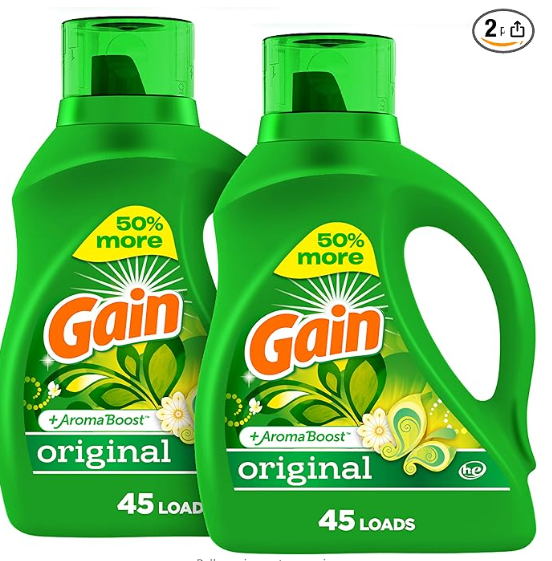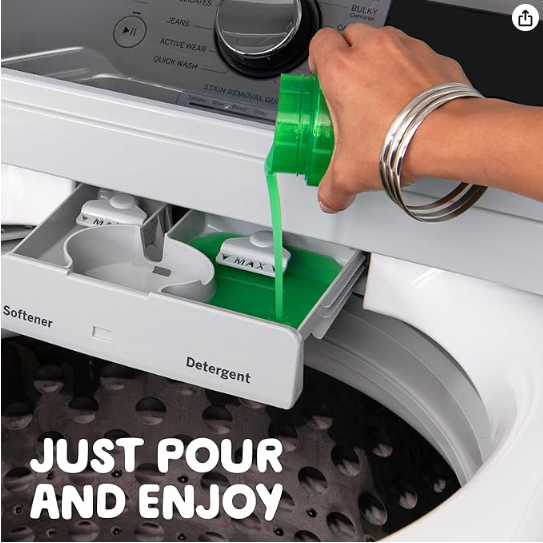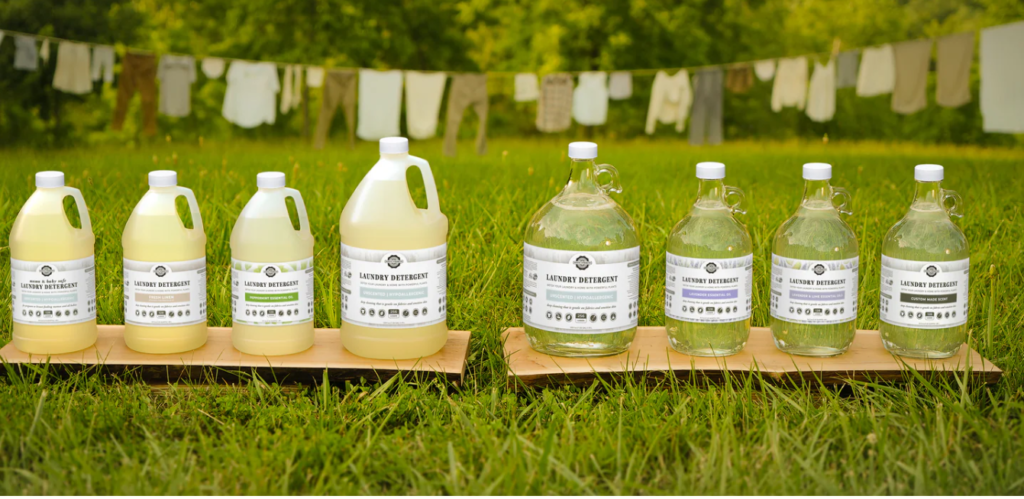Laundry detergent is a cleaning agent specially formulated for washing clothes and linens. It is designed to remove dirt, stains, and odors from fabric, while also preserving the fabric’s integrity. There are many different forms and types of laundry detergent available, each with distinct properties and benefits.

Types of Laundry Detergents
1.Powder Detergent:
Advantages: Generally more cost-effective, great for removing ground dirt and stains, and often comes with a longer shelf life.
Disadvantages: May leave residue if not dissolved properly, may not be as effective in cold water.
Powder detergent
Powder detergent is the traditional and widely used form of laundry detergent that comes in powder form. It is favored by many for its cost-effectiveness and strong cleaning power, especially on heavily soiled fabrics. Here’s a closer look at powdered detergent, including its ingredients, benefits, usage tips, and environmental impact.
Powder Detergent Ingredients
1. Surfactants: These are basic cleaning agents that lower the surface tension of water, allowing it to penetrate fabrics and pick up dirt and grease.
2.Builder: Substances such as sodium carbonate (washing soda) and sodium silicate that soften water, increase the effectiveness of surfactants.
3. Enzymes: Biological molecules that break down certain types of stains, such as proteins, fats, and carbohydrates.
4.Bleaching Agents: Compounds like sodium percarbonate that help whiten clothes and remove stubborn stains.
5. Optical Brighteners: Chemicals that absorb UV light and re-emit it as blue light, making clothes appear brighter.
6. Fragrance and Color: Added to provide a pleasant aroma and improve the visual appeal of the soap.
Advantages of Powdered Detergents
1. **Cost-Effective**: Generally more affordable than liquid and single-dose detergents, this makes it a budget-friendly option for many households.
2. Effective on heavy soils: Particularly good at tackling ground dirt and stubborn stains, often found on work clothes and sportswear.
3. Longer Shelf Life: Powder detergents have a longer shelf life than liquid soaps, as they are less susceptible to degradation.
4. Eco-Friendly Packaging: Usually comes in cardboard boxes which are easier to recycle than plastic bottles used for liquid soaps.
Tips for using powder detergent
1.Proper dissolutio:ake sure the powder is completely dissolved in water to prevent residue on clothes. This can be a challenge in cold water, so pre-dissolving the powder in hot water can help.
2. **MEASURE ACCURATELY**: Use the recommended amount of detergent based on load size and soil surface. Overuse can lead to residue build-up, while underuse can result in ineffective cleaning.
3. **Loading the washer**: Place detergent in the designated detergent drawer or directly into the drum before loading. Make sure to distribute the clothes in the washer for maximum cleaning.
4. **STORAGE**: Store detergent in a dry place to prevent clumping and maintain effectiveness.
Environmental Effects of Powdered Detergents
1. Biodegradable Ingredients: Many powder detergents are formulated with biodegradable surfactants and builders, which reduce their environmental impact.
2.Packaging: Cardboard packaging is generally more environmentally friendly than plastic, as it is more easily recycled and is often made from recycled materials.
3. Water Use: Powder detergents often require more water to dissolve completely, especially in areas with hard water. However, there are formulations available for high efficiency (HE) washers that use less water.
Innovations and Trends
1. HIGH PERFORMANCE FORMULATIONS: Designed for use in HE washers with low water usage, these low-sodding detergents are designed to dissolve quickly and rinse thoroughly.
2.Eco-Friendly Options: Increasing demand for environmentally responsible products has led to the development of powder detergents with natural, non-toxic ingredients and minimal packaging.
3.SENSITIVE SKIN FORMULAS: Powder detergents are now available in hypoallergenic versions, free of dyes and fragrances, to cater to those with allergies or sensitive skin.
2. Liquid Soap:
BENEFITS: Dissolves easily in both cold and hot water, is effective on greasy and oily stains, and can be used as a pre-treatment for blemishes.
Disadvantages: Generally more expensive than powder, heavier to carry, and may have a shorter shelf life.
3. Single Dose Pods or Packs:
Advantages: Simple and easy to use, pre-measured to avoid overdosing, and minimal mess.
Disadvantages: More expensive per load, dangerous to children and pets if ingested.
4. Eco-Friendly or Natural Soap:
Benefits: Made with biodegradable and non-toxic ingredients, gentle on the environment, and often suitable for sensitive skin.
Disadvantages: May be less effective on tough stains and generally more expensive.

- MULTI-PURPOSE CLEANER – Naturally dissolve dirt, neutralize odors, and eliminate stains, grime, soap scum, hard water deposits, and more from laundry or surfaces around the home
| Brand | Gain |
| Item Form | Liquid |
| Scent | Original Fresh |
| Unit Count | 130.0 Fl Oz |
| Material Type Free | Phosphate Free |
Important Ingredients
1. **Surfactants**: help break up and remove dirt and grease from clothes.
2. **Builder**: Increases the effectiveness of surfactants by softening water and breaking down dirt.
3. **Enzymes**: Target specific types of stains such as proteins, fats and starches.
4. **Bleaching Agent**: Help whiten clothes and remove stubborn stains.
5. **Optical Brighteners**: Reflect light to brighten fabrics.
6. **Fragrance and Color**: Give a pleasant smell and visual appeal to soaps and clothes.
How to use laundry detergent.
– **Read Instructions**: Follow the manufacturer’s recommendations for the correct amount of detergent based on load size and soil surface.
– **Sort Laundry**: Separate clothes by color, fabric type, and wash temperature to prevent damage and color bleeding.
– **Measure appropriately**: Overuse can cause residue build-up on clothes and washing machine, while underuse can result in ineffective cleaning.
– **Load the washer correctly**: Make sure the clothes are evenly distributed in the washer to allow for proper movement and rinsing.
Environmental considerations
Biodegradable Formulas: Choose detergents with biodegradable ingredients to minimize environmental impact.
Concentrated Detergent: Use less packaging and reduce the carbon footprint associated with transportation.
Cold Water Formulas: Save energy by allowing efficient cleaning at low temperatures.

Innovations in Laundry Detergents
Recent developments include formulations designed specifically for high-efficiency (HE) washers, which use less water and require less sudsing detergent. There is also a growing trend towards hypoallergenic and sensitive skin formulas, catering to the needs of those with allergies or skin sensitivities.
In summary, powder detergents are a popular choice due to their effectiveness, affordability, and long shelf life. With advancements in formulation, it continues to meet the evolving needs of consumers, offering options that are eco-friendly and suitable for different skin sensitivities. Proper use and storage can increase its performance, making it a reliable choice for maintaining clean and fresh laundry.
Finally, laundry detergent is an essential household product, available in a variety of forms and formulations to meet different cleaning needs, preferences and environmental concerns. Choosing the right detergent can significantly affect the cleanliness, longevity and freshness of your clothes.
WRITER BY @SHUMAIL
Ingredients
1 bar of soap (e.g., castile, Fels-Naptha, or Ivory)
1 cup washing soda (sodium carbonate)
1 cup borax (sodium borate)
Instructions
Grate the Soap: Finely grate the bar of soap using a cheese grater or food processor.
Mix Ingredients: Combine the grated soap, washing soda, and borax in a large bowl. Mix thoroughly.
Store: Transfer the mixture to an airtight container.
Usage
Use 1-2 tablespoons per load, depending on the size and soil level of the laundry.
This homemade detergent is effective and budget-friendly, with minimal environmental impact.
Ingredients:
1 bar of soap (e.g., castile, Fels-Naptha, or Ivory)
1 cup washing soda (sodium carbonate)
1 cup borax (sodium borate)
Instructions:
Grate the Soap: Finely grate the bar of soap.
Mix Ingredients: Combine the grated soap, washing soda, and borax in a bowl. Mix well.
Store: Transfer to an airtight container.
Usage:
Use 1-2 tablespoons per load.

Your posts stand out from other sites I’ve read stuff from. Keep doing what you’re doing! Here, take a look at mine Webemail24 for content about about Web Design.
Thanks:
Pingback: Casual shoes have come long way from their origins Right Now